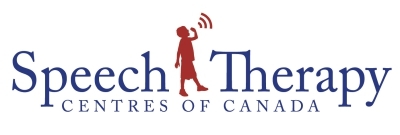When parents walk through our door, they often want to know ‘WHY’ their child is not understanding and talking like other children; ‘WHY’ they aren’t pronouncing sounds like others; or ‘WHY’ they’re stuttering. Listed below are some factors that are known to predispose or precipitate speech and language disorders.
Neurological factors: Specific areas in the brain control our speech and language functions. Understanding what others say to us, expressing our thoughts and needs, remembering details of what was said, reading, and writing are all controlled by regions in the brain. There is evidence in the literature to suggest that children with language disorders may have a neurological involvement contributing to their speech and language difficulties. This means that there may be obvious or subtle differences in the brain which makes the child susceptible to a language disorder. No one pattern of brain architecture has been consistently shown in all individuals with language impairments, which makes this all still a bit of a mystery.
Motor and Sensory factors: Our senses serve as channels for us to perceive the external environment. Be it our sense of vision, hearing, touch, taste, and smell; they offer us with different ways to perceive things from the external environment. If any of these senses are not functioning optimally, it would limit the essential information that we receive from our environment. For example, children with vision or hearing problems will not be able to use those senses to see by reading, or hear someone speaking in their environment, making them more susceptible to a speech or language disorder. Having adequate motor skills is also essential to speech and language development. Early on, children move around and explore their environment. This exploration fosters early language and cognitive development as they are exposed to new ideas and vocabulary. Children who have limited motor abilities may be at a disadvantage because of not being able to actively explore their environment. Adequate motor abilities are also required for the movement of the voice and oral structures (lips, teeth, tongue etc.) required for speech. Thus, any difficulty with speaking movements may impact a child’s speech and language development.
Cognitive: Intact cognition (the ability to think, know, perceive, judge, reason etc.) is an important foundation on which we build our speech and language skills. Vice versa, developing our speech and language skills helps us improve our cognitive abilities. Hence, children with cognitive challenges may be at risk for developing speech and language disorders. These children may have trouble associating different words with their meanings, remembering words, recognizing patterns and sorting words into different categories, and learning new concepts in general.
Genetic factors: Speech and language disorders tend to run in families, suggesting a possible genetic involvement in causing these disorders. However, it is also true that many people with speech/language disorders’ children do not have any difficulties, and that children with speech/language disorders have no family history of it in the past.
Environmental factors: Environmental information is key in fostering speech and language development. Providing a language rich environment with an adequate amount of stimulation is necessary to support children in developing age-appropriate speech and language skills. Children who have a less language rich environment and stimulation may be at risk for developing speech and language disorders.
Acquired factors: Some individuals may acquire speech and language skills as per typical milestones and then lose some of these skills due to an acquired brain injury or illness. Some examples of these include a traumatic brain injury, infections such as meningitis, tumors, strokes, etc.
It is important to note that this list is not exhaustive, but is an overview of some of the reasons we may see speech-language disorders.
If you are concerned about your child’s speech and language development, see a Speech-Language Pathologist to address your concerns.
Nisha Balakrishnan M.A. SLP, Reg. CASLPO Speech-Language Pathologist The Speech Therapy Centres of Canada www.speechtherapycentres.comReference: Paul, R. (2007). Language Disorders from Infancy through Adolescence- Assessment and Intervention. (3rd ed.). St. Louis, Missouri: Mosby Inc.
